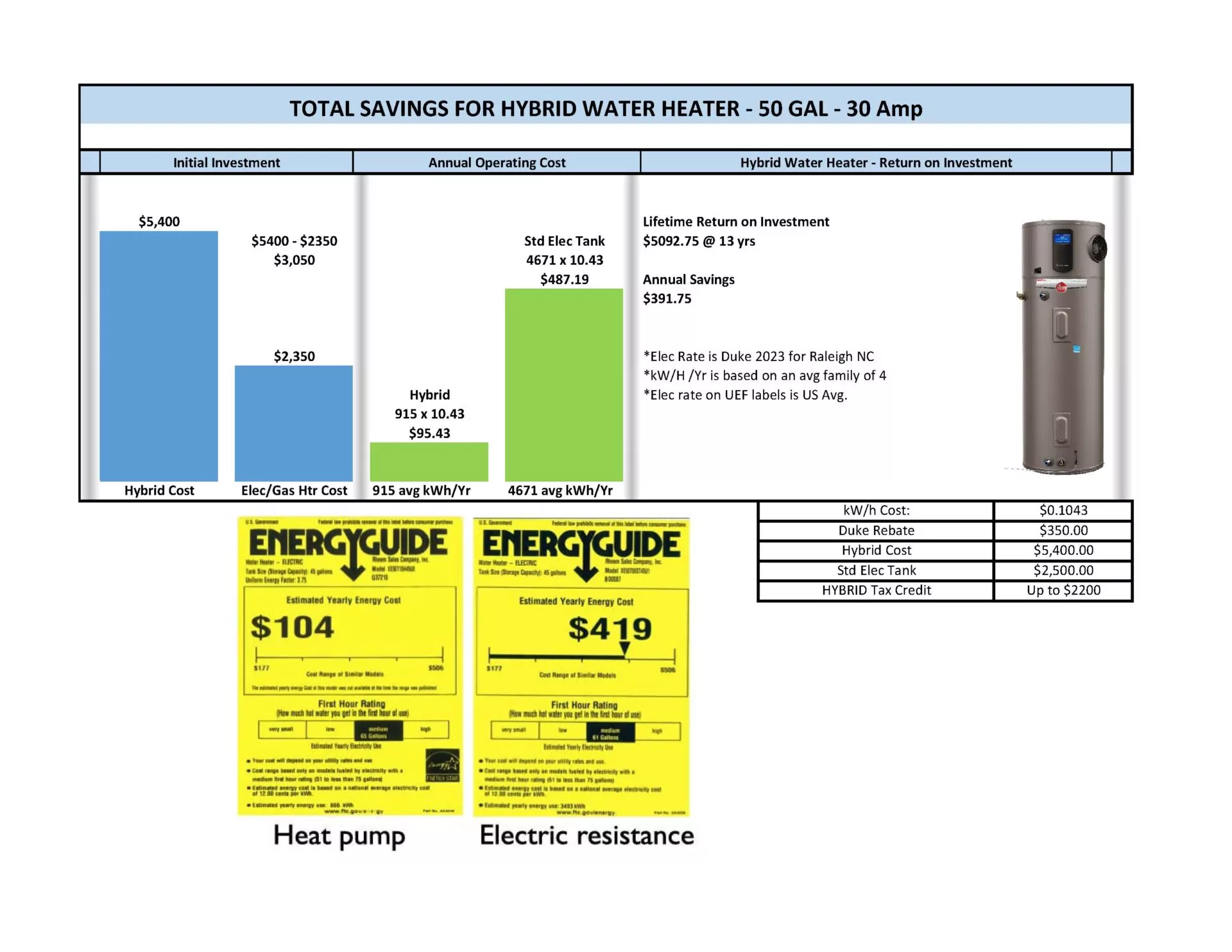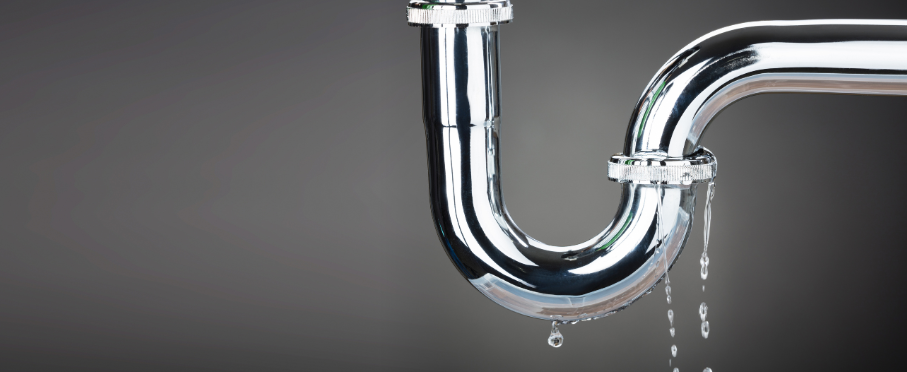6 Huge Benefits of Investing In a Hybrid Water Heater

We all have water rituals that get us through the day feeling clean, happy, and refreshed, whether it’s a hot shower to wake us up, doing that never-ending pile of laundry while playing a podcast, or a big splash whenever the kids finally listen and rinse those half-eaten plates after dinner. Hot water is needed for all of these tasks and more. Having a hybrid water heater can help reduce the cost of that hot water.
The Department of Energy estimates that 20% of a household’s energy bill comes from the water heater. Sure, we can reduce hot water usage to save money and minimize our carbon footprints. However, buying an energy-efficient water heater will make a significantly bigger impact. One of several energy-efficient options, the hybrid water heater, aka the heat pump water heater, is up to three times more efficient than regular water heaters. Who says you can’t reduce your carbon footprint while keeping hot baths?
How Do Hybrid Water Heaters Work?
Heat pumps (you may have one in your heating system) transfer heat from the outside air to an area using an evaporator coil. When using a water heater, heat is transferred into the storage tank. Like a reverse refrigerator, it heats the water in the tank. Homes in the Greater Raleigh area are perfect candidates for hybrid water heaters, where they may benefit from our warm climate.
Pro Tip: Installing your water heater in a furnace room, laundry room, or other warm locations will make the hybrid more efficient.
But why call it a hybrid? Well, during times when there is a large demand for hot water, such as when a family takes consecutive showers, a hybrid water heater can use electricity. Remember, though, a hybrid’s energy efficiency drops when it uses electricity, so it is crucial to change its settings back to default when you do not need that extra power.
The Benefits Of A Hybrid Water Heater
1) Energy Efficiency
This is likely the best benefit of purchasing a hybrid. It can be up to three times more energy efficient than a typical electric water heater since it absorbs heat from the air to heat the water instead of using electricity.
2) Return on Investment
Because a hybrid water heater uses less energy than an electric water heater, it costs you far less to operate than an electric water heater. The graphs below illustrate the typical savings of switching from an electric water heater to a hybrid.
2) Longer Life
Regular electric water heaters are less durable than hybrids. Hybrid typically last 15 years, compared to electric water heaters’ average lifespan of 10. Hybrids have more extended warranties because they often have longer lifespans. Keep in mind proper maintenance can increase the lifespan of your water heater.
3) Rate of Recovery
Compared to electric water heaters, hybrid recovers more quickly. The recovery rate is calculated by the quantity of hot water provided in an hour. If your hybrid is running low on hot water, you can get more by switching the settings to electric. So, you’ll have an abundance of efficient hot water.
5) Simple Settings
Your hybrid water heater comes with an intuitive app where you can customize its settings. Are you taking a trip? No problem. You can quickly reduce its energy use before you leave. You don’t want to go to the basement but want to adjust the water heater’s output? You can get this app on your phone, so you don’t need to confront the basement monsters.
6) Dehumidification
A heat pump’s ability to extract heat from the surrounding air also dehumidifies the air as a byproduct. Even if this is a minor side effect, it is a positive benefit—no more stuffy laundry room.
Why You Might Not Want A Hybrid
1) Up-Front Price
Hybrid water heaters have a higher upfront cost than electric water heaters. But keep in mind that getting a hybrid will save you money in the long run due to its higher energy efficiency and longer lifespan. With monthly payments through our Ease Comfort Program, upgrading your water heater is simple and affordable. Your household may also be eligible for a few programs offered by regional governments and energy providers. To determine if you qualify, look at the IRS Home Energy Tax Credits Flyer and the Duke Energy Efficiency Rebate Program.
2) Requires More Room
A hybrid water heater will be taller since it contains an evaporator coil. This will be rough if your existing electric water heater is in a small location.
3) Maintenance
Maintenance is even more important for hybrids because they have air filters that need replacing and condensation lines that require draining. However, all water heaters need regular maintenance and routine cleaning.
When your old water heater no longer does the trick, think about buying a hybrid, especially if you value energy efficiency, enjoy taking lots of hot showers and baths, and love the convenience of operating your home appliances from your phone. To find out what will work best for you and your family, schedule a free quote with one of our Comfort Advisors today!
If you found this post helpful, check out our other blog posts, subscribe to our YouTube channel, and follow us on social media for more HVAC and plumbing tips, information, and fun!
Air Experts Raleigh Heating and Air is always here for your Heating, Cooling, Indoor Air Quality, Plumbing, and Water Treatment needs. Our award-winning customer service team is available 24/7, or you can easily book an appointment online.






